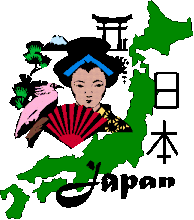| まいごの まいごの こねこちゃん、 | Maigo no maigo no konekochan, |
| あなたのおうちは どこですか。 | Anata no ouchi wa doko desu ka. |
| おうちをきいても わからない、 | Ouchi wo kiitemo wakaranai, |
| なまえをきても わからない。 | Namae wo kiitemo wakaranai. |
| ニャン ニャン ニャン ニャーン、 | Nyan, nyan, nyan, nya-n, |
| ニャン ニャン ニャン ニャーン。 | Nyan, nyan, nyan, nya-n. |
| ないてばかりいる こねこちゃん。 | Naite bakari iru konekochan. |
| いぬの おまわりさん こまってしまって。 | Inu no omawarisan komatte shimatte. |
| ワン ワン ワン ワーン、 | Wan, wan, wan, wa-n, |
| ワン ワン ワン ワーン。 | Wan, wan, wan, wa-n. |
| まいごの まいごの こねこちゃん、 | Maigo no maigo no konekochan, |
| このこの おうちは どこですか。 | Kono kono ouchi wa doko desu ka. |
| からすにきいても わからない、 | Karasu ni kiitemo wakaranai, |
| すずめにきいても わからない。 | Sozume ni kiitemo wakaranai. |
| ニャン ニャン ニャン ニャーン、 | Nyan, nyan, nyan, nya-n, |
| ニャン ニャン ニャン ニャーン。 | Nyan, nyan, nyan, nya-n. |
| ないてばかりいる こねこちゃん。 | Naite bakari iru konekochan. |
| いぬの おまわりさん こまってしまって。 | Inu no omawarisan komatte shimatte. |
| ワン ワン ワン ワーン、 | Wan, wan, wan, wa-n, |
| ワン ワン ワン ワーン。 | Wan, wan, wan, wa-n. |
Ok now, for a rough translation of the song. Because it is children's Japanese it is surprisingly not that easy to translated, but here it goes:
Lost, lost Kitten-chan,
Where is your home?
I asked about you home but you do not understand,
I asked you your name but you do not understand.
Meow, meow, meow, meow,
Meow, meow, meow, meow.
Kitten-chan will not stop crying.
Mr police dog is in trouble.
Bark, bark, bark, bark,
Bark, bark, bark, bark.
Lost, Lost Kitten-chan
Where, where is your house?
I asked the crow, but he does not know,
I asked the sparrows, but they do not know.
Meow, meow, meow, meow,
Meow, meow, meow, meow.
Kitten-chan will not stop crying.
Mr Police dog is in trouble.
Bark, bark, bark, bark.
Bark, bark, bark, bark.
A quick lesson:まいご - maigo - lost / stray
こねこ - koneko - kitten (a baby word for kitten is ニャンこ - nyanko - meow-child)
わからない - wakaranai - Don't know / Do not understand (I have used both translations because it made more sense with the song)
ニャン - nyan - meow
ワン - wan - bark / woof
おまわりさん - omawarisan - Policeman (A friendly term)
からす - karasu - crow / raven
すずめ - suzume - sparrow (In the translation I have used the plural, sparrows, because in the animation we see three sparrows)

